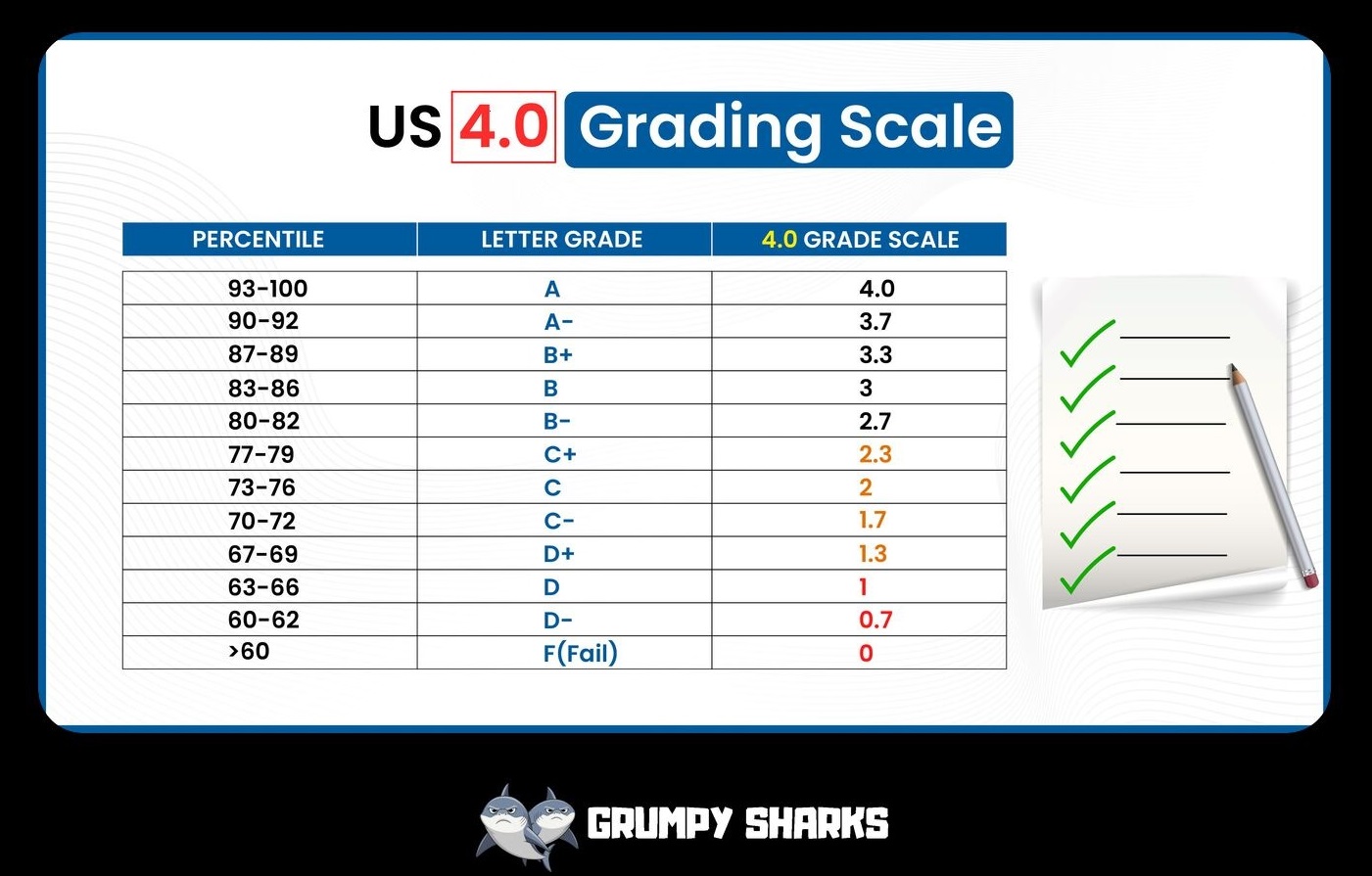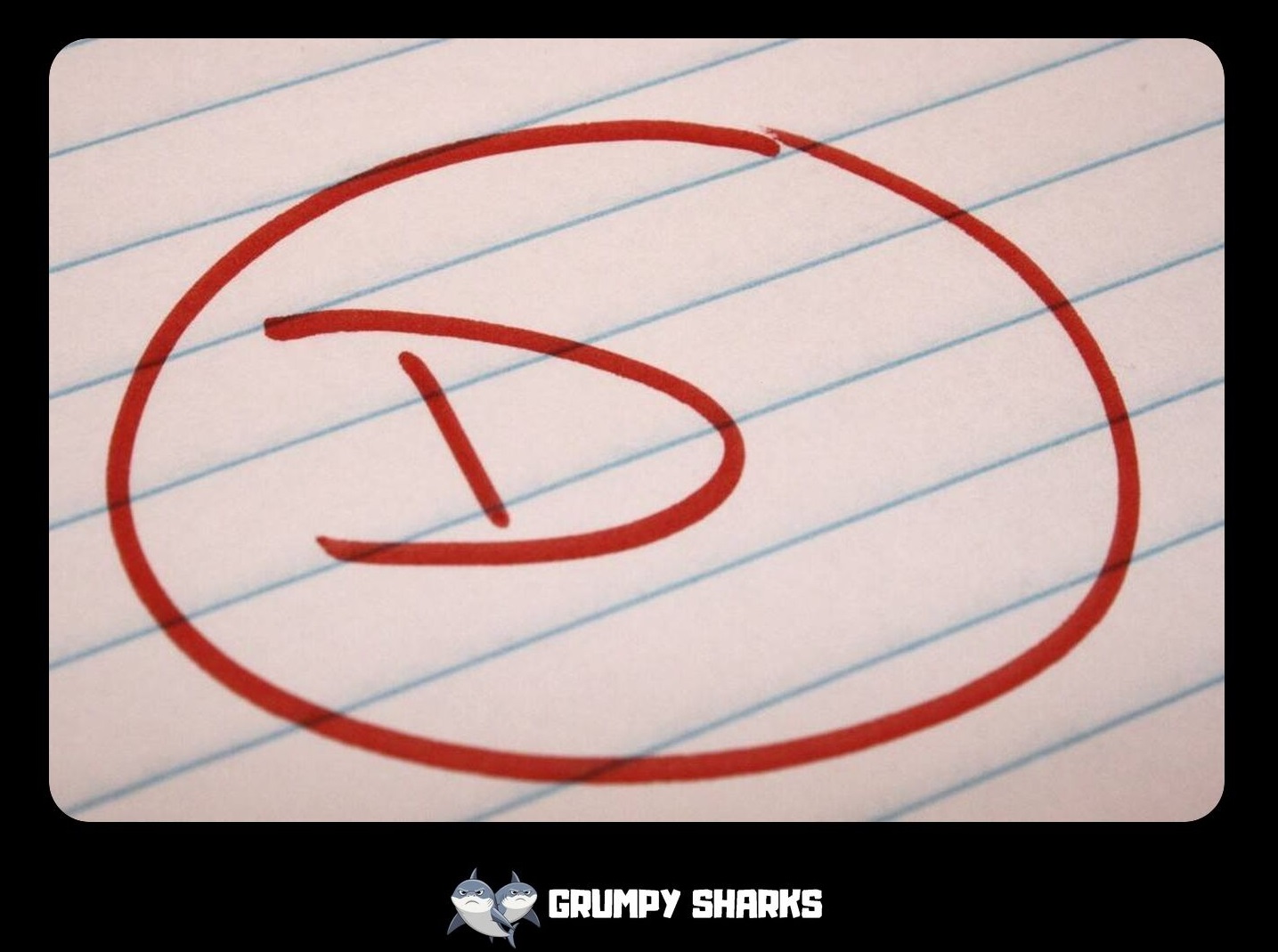Grade D Is Pass or Fail? What You Absolutely Need to Know to Graduate
Grade D is pass or fail—a question students around the world still Google at 3 a.m. before final grades are posted. Whether you’re in college, high school, or the UK’s GCSE system, this one letter can make or break your next move. At Grumpy Sharks, we believe in cutting through the academic jargon and giving you a straight answer.
Let’s explore what a D means, when it’s considered a pass, and when it might come back to haunt you.
The Grading System: What Is a Grade D, Really?
Most universities and colleges in the United States and many other countries use the A–F letter grading system. Here are the common grading systems and their corresponding grades:
| Letter Grade | Percentage Range | GPA (4.0 Scale) | Meaning |
|---|---|---|---|
| A | 90% – 100% | 4.0 | Excellent |
| B | 80% – 89% | 3.0 | Good |
| C | 70% – 79% | 2.0 | Average |
| D | 60% – 69% | 1.0 | Below Average |
| F | Below 60% | 0.0 | Fail |
Some colleges use variations like B+ or C-, and others include GPA scores on a 4.0 scale (where D typically equals 1.0).
A grade D usually falls between 60% and 69%, depending on your school or country.
So, Grade D Is A Pass Or Fail
In most American colleges and universities, grade D is considered the minimum passing grade. That means you’ve met the very basic requirements to complete the course and earn credit.
However, just scraping by isn’t always enough. Some programs and majors — especially in fields like nursing, engineering, or education — **require a C or higher** to officially pass. In those cases, a D might be recorded but won’t help you progress to the next level or fulfill major requirements.
When a D Isn’t Enough?
Let’s say you’re in a biology major. If the department policy says you need at least a C in core science courses, getting a D in chemistry won’t cut it — even though it technically counts as a pass in the school’s grading scale. It’s important to **know the policies of your department or advisor** so you don’t get caught off guard.
What About in High School?
In high school, a D is almost always a passing grade—just barely. It usually means you won’t have to repeat the class. But if you’re applying to competitive colleges or hoping for scholarships, those Ds can raise red flags.
Some high schools also require a minimum grade for graduation in key subjects like math or English. And if your overall GPA drops too low, you could lose sports eligibility or end up in credit recovery programs.
Passing Grades in Graduate School
When you move up to graduate-level education, expectations rise. Most graduate schools expect at least a C or C-minus to consider a course passed, but many require Bs or a 3.0 GPA to stay enrolled.
This is especially true for competitive master’s or doctoral programs. Courses are tougher, grading is stricter, and the pressure to maintain a high GPA is real. That’s why it’s crucial to research your program’s grading policies before diving in.
If you’re aiming for graduate school, keep this in mind during your undergrad years — those C’s and D’s may come back to haunt your application later.
Is D Grade Pass or Fail in GCSE?
If you’re studying in the UK, you might be wondering if grade D is pass or fail in GCSE. Under the older letter system, a D was considered a “lower pass.” But with the current numerical grading system, a D roughly equals a grade 3, which is now considered a fail.
To officially pass your GCSEs, you need at least a grade 4, equivalent to the old C. So in the UK system, D is now a fail for most academic and job-related purposes.
How Bad Is a Grade D? When Does It Become a Problem?
While grade D is pass or fail might depend on context, the real question is how it affects your future. One or two Ds might not ruin everything—but a pattern of them can create trouble:
- You might lose scholarships or financial aid
- Your GPA can dip below academic probation levels
- You could become ineligible to transfer credits or graduate on time
- And it can be a red flag on job or internship applications that request transcripts
Basically, if you’re seeing more than one D, it’s time for a course correction—whether that’s tutoring, office hours, or even retaking the class.
Conclusion: Grade D Is Pass or Fail?
Let’s wrap it up: Grade D is a pass in most cases—but it’s the lowest one possible. It won’t get you a gold star, and it definitely won’t help your GPA, but it’s enough to scrape by in many systems.
However, depending on your academic goals, a D might not be good enough. If it’s for a core class, a scholarship requirement, or your future career path, you may need to aim higher or repeat the course.
At Grumpy Sharks, we’re not here to judge—we’re here to help you understand the system and make better decisions. Because when it comes to grades, knowing where you stand is the first step toward going where you want.











